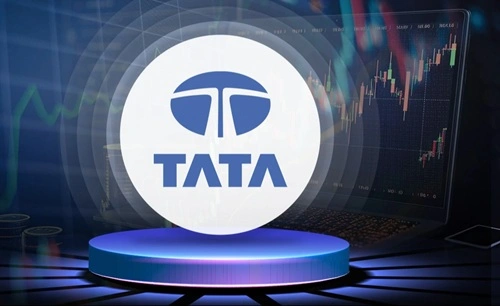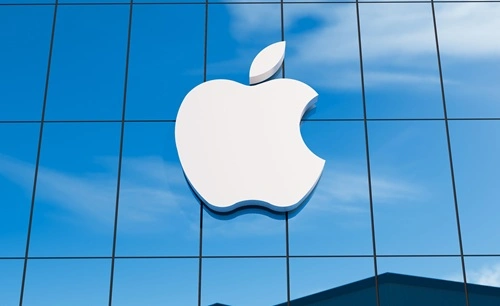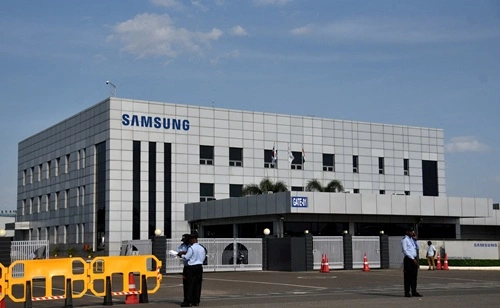A Multinational Company, or MNC for short, is a company that operates in multiple countries around the globe, other than just the home country. That right there is the simplest definition of MNC, but when it comes to their way of working, well, it is far from simple. Like, it could very well be that they only have headquarters in one country, but the whole production and sales things happen in other nations. And if you’re a bit confused about it and want examples of the specific MNC companies in India, well, then, sure enough, we have something for you. Yes, it is a list that we prepared for you, precisely the list of the Top 10 largest MNC Companies In India 2025. Here we go then.
1. Tata Group

First things first, it is not an ordinary company in India, but one of the most trusted brands in the world. Established in 1868 in Mumbai, it has developed over the years to become a global conglomerate present in 100 countries. Generating revenues of $165 billion globally as of 2024, Tata has hired over 1.028 million employees. To Tata, in India, there is almost nothing Tata cannot do: They make cars through Tata Motors, IT services through TCS, steel through Tata Steel, hospitality through Taj, and even retail through Croma and Tata Cliq.
2. Amazon India

Since it started here in 2013, Amazon India has blended into the daily lives of everyone. With their parent corp having clocked revenues amounting to more than $574.8 billion globally in 2023, Amazon India is more than just an online marketplace. A series of gigantic warehouses have been built, countless delivery stations have been set up, and the entire length and breadth of India has been reached. Additionally, they run AWS here, which empowers thousands of Indian enterprises. By 2023, they had about 1.25 lakh employees in India.
3. Google India (Alphabet Inc.)
Started in 2004, Google India is the king of the digital scene in India. The parent company, Alphabet, earned $237.8 billion in 2023, and here, Google services like Search, YouTube, Google Pay, and Android are quite literally everywhere. It has offices in Bengaluru, Hyderabad, Gurugram, and Mumbai and has only come to define the tech space in India. Google supports startups, runs digital skills training, and collaborates with the government on AI and education tech. In India, Google is rather vastly large and very important.
4. Infosys

Infosys is a big Indian multinational company that went global and has become really big. It was founded in 1981 in Bengaluru, and today it stands among the top IT companies worldwide. Infosys recorded a revenue of 18.6 billion dollars and had more than 317,000 employees worldwide in 2024. In India, particular sectors that Infosys is famous for and associated with are software, consulting, and business digitization. Though it operates from over 50 countries, a goodly part of its operations is maintained in Bengaluru.
5. Apple India

Apple India is really fast-growing these days. They had appeared in the country in 2011, but accurate movements like setting up plants for iPhone manufacturing in India and building their big retail stores have made them tremendous. Globally, Apple made $119.6 billion in 2023, and in India, they are trying to build strong supply chains with the help of the government under the PLI scheme. Their investments are big enough to show they will be here to grow.
6. Microsoft India

Microsoft has been in India since 1990, and it is one of the biggest tech MNCs around. Founded in 1975 in Seattle, Microsoft had $211 billion in revenue generated globally in 2023 and an employee strength having more than 220,000. Microsoft has offices across Hyderabad, Bengaluru, Mumbai, and Delhi in India, making its presence felt in the fields of cloud services, software, and digital transformation. Microsoft Azure is a major cloud platform for Indian businesses and governments. They also work with schools and startups.
7. Hindustan Unilever (HUL)

HUL is the Indian wing of Unilever, a global multibillion-dollar consumer-goods company. They got their start in India in 1933 and today enjoy the familiarity of a super popular name. Globally, Unilever clocked approximately $62.4 billion in revenues in 2023, and HUL brings Surf Excel, Dove, Lifebuoy, and Horlicks to millions of kitchens. They have a workforce of over 21,000 across India; their products are even found in India’s tiniest villages. No FMCG MNC is said to have deeper market penetration in India than HUL.
8. Samsung India

It came to India in 1995, and it gave rise to a world of electronics, appliances, and smartphone leaders. Globally, in the year 2023, a revenue of $200.26 billion was earned, while the southern states of India have this massive manufacturing plant in Noida, arguably one of the biggest mobile manufacturing setups across the globe. They have their research centers situated in Bengaluru and Noida. Samsung will be the premier choice in most things that sell, from TVs to top-tier premium phones and tablets.
9. Aditya Birla Group

The Aditya Birla Group is an Indian company that operates like a multinational and is operational in over 36 countries. Established in 1857 in Mumbai, it earned USD 65 billion in 2024, employing over 187,000 people. Their UltraTech Cement is India’s biggest cement company. They are also into metals, textiles, telecoms, and financial services. While it’s a big company internationally, the Aditya Birla Group maintains a strong connection with India.
10. IBM India

IBM India is one of the oldest tech MNCs here, with its start in 1992. The company made revenues of about 61.17 billion US$ in 2023 worldwide, with its Indian team being the heart of around 130,000 employees. They work in cloud computing, AI, blockchain, and business software. IBM has huge campuses in Bengaluru, Pune, and Hyderabad, collaborating with entrepreneurs and the government. Their research labs and consulting keep them at the very front of India’s digital transformation.
Conclusion
There you have it. These are by far the biggest and most popular MNC names right here in India, and there is no way you don’t know about any of these companies. They quite literally have a big role in the Indian market in different niches or segments of the market as well.